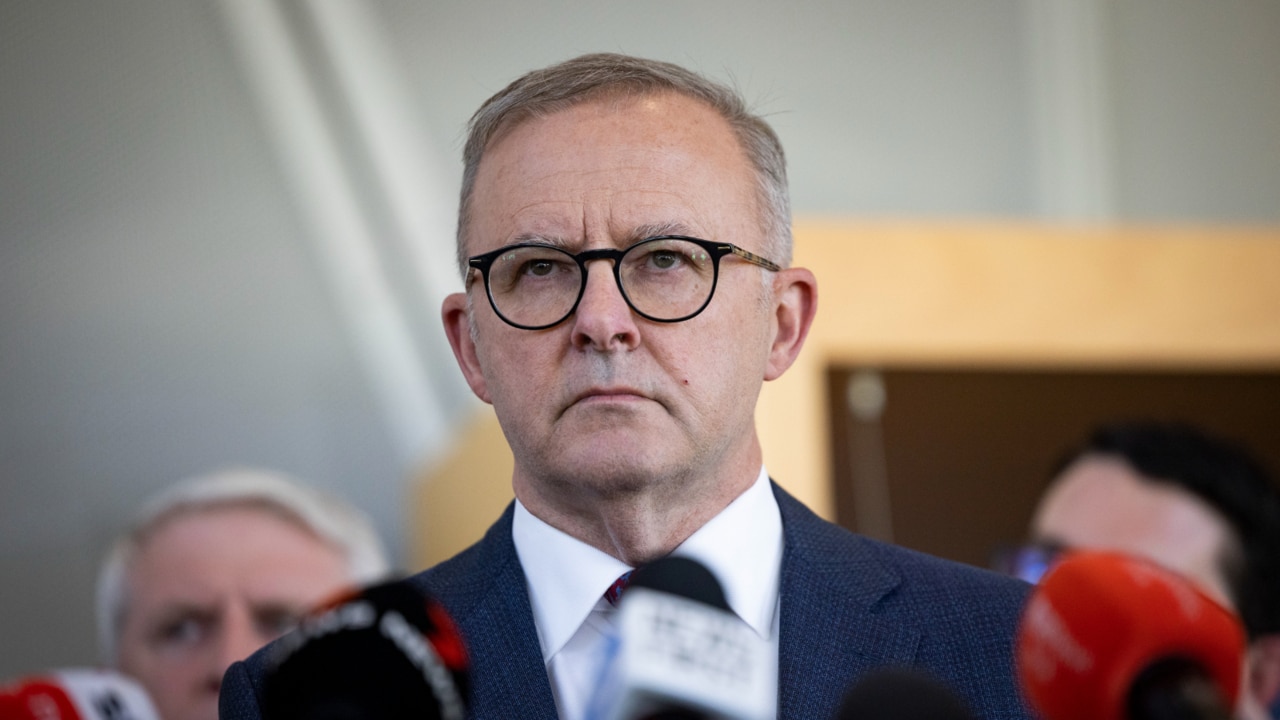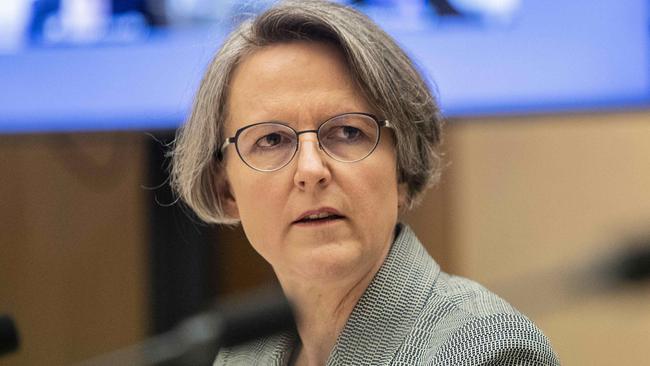Prime Minister Anthony Albanese takes a dig RBA governor Philip Lowe’s ‘no hikes until 2024’ call
Anthony Albanese has used Australia’s Economic Outlook forum to take a shot at RBA boss Philip Lowe as relations with the central bank reach new lows.

Anthony Albanese has mocked Reserve Bank governor Philip Lowe’s pandemic-era prediction that rates would not rise until 2024 and refused to say he will extend his term, weeks out from a decision about the central bank boss’s future.
As relations between the government and RBA reach their most fraught since the “recession we had to have” in the early 1990s under Paul Keating, the Prime Minister’s comments reinforced the widely held view that Dr Lowe will be replaced when his seven-year term ends in September.
Questioned why the budget assumed a cash rate of 3.85 per cent only last month when the RBA’s key policy rate is now at 4.1 per cent and rising, Mr Albanese shot back: “That’s not the only prediction on interest rates that have not been correct.
“It’s not as incorrect as the one saying there’d be no increases until 2024. So these things are all relative.”
With unions and the Greens attacking Dr Lowe for smashing mortgage holders with the most aggressive monetary policy tightening since the late 1980s, the government is seeking to shield itself from the political fallout of the independent central bank’s actions. After 11 rate hikes during Labor’s first year in office, Mr Albanese said the surge in inflation was in train before the election. “Interest rates were never going to stay at 0.1 (per cent), that was never going to happen,” he said.

Jim Chalmers this week said Australians deserved an explanation for the 12th rate increase in a little over a year – saying households would find the RBA board’s decision “difficult to understand and difficult to cop”.
The Treasurer has committed to reveal Dr Lowe’s future by mid-year, and Mr Albanese on Friday said he would not pre-empt that announcement.
While the previous two governors have been granted three-year extensions, most believe Dr Lowe will not stay in the top job beyond the end of his term.
Warren Hogan, a former ANZ chief economist, said “it appears to be politically impossible for the government to extend his term, but it is very hard to see where they are going to find someone who could do a better job”.
With the battle to tame the biggest inflationary outbreak in more than three decades far from over, Mr Hogan said: “It is extraordinary risky to replace a central banker in a period of such high uncertainty – particularly when that person is one of the finest public servants of our nation and one of the best economists of his generation.”
With few obvious potential replacements, speculation on his successor has focused on Department of Finance secretary Jenny Wilkinson, former RBA deputy governor Guy Debelle, and Carolyn Wilkins, a former senior deputy governor at the Bank of Canada. Dr Debelle, however, is unlikely to be wooed back from the private sector and Professor Wilkins is understood to be unwilling to quit her job at Princeton University, making Ms Wilkinson the most likely candidate.

Current RBA deputy governor Michele Bullock is considered inside and outside the bank to be an able replacement for Dr Lowe, but implementing the wide-ranging cultural and operational changes recommended by the RBA review panel may require an external appointment.
Speaking at the Sky News-The Australian Economic Outlook Conference, Mr Albanese pushed back against increasingly gloomy predictions of recession, saying he remained “very positive” about the nation’s future. The Prime Minister defended the government’s reform agenda after figures showed productivity declined at its fastest pace on record in the year to March, but conceded more needed to be done.
As businesses campaign hard against the government’s proposed “Same job, same pay” reforms, the Prime Minister accused the opposition of “catastrophising” the impact of Labor’s workplace reforms. Mr Albanese also said the Housing Australia Future Fund, which goes in front of parliament next week, was “unfinished business” and labelled the Greens as “hypocrites” for demanding more be done to ease the national housing crunch, but not getting behind medium- and high-density residential developments in their electorates.
BUSINESS P25







To join the conversation, please log in. Don't have an account? Register
Join the conversation, you are commenting as Logout